Das Olympische Bildungsmagazin
Der CONCACAF-Bericht zu den Millionengaunern und FIFA-Ehrenmännern Chuck Blazer und Jack Warner
- Jens Weinreich
- 20. April 2013
- 17:38
- 9 Kommentare
Congrats to @lasanaliburd and other journalists in T&T who forced Jack the Ripper @jackwarnertt to resign as minister #FIFAcorruption
— Jens Weinreich (@jensweinreich) April 22, 2013
Das Integrity Committee der nordamerikanischen und karibischen Fußballkonföderation CONCACAF hat seinen Bericht zu einigen Verfehlungen der Ganoven Jack Warner (Präsident von 1990-2011) und Chuck Blazer (Generalsekretär von 1990-2011) vorgelegt.
Lesebefehl!
Wenn ich richtig informiert bin, dann gelten die Millionenbetrüger noch als FIFA-Ehrenmänner und erhalten eine fürstliche Pension aus Zürich.
Wer sich nur die Zusammenfassung antun möchte. Auch die ist lesenswert, natürlich:
The Confederation of North, Central American and Caribbean Association Football („CONCACAF“)
INTEGRITY COMMITTEE
REPORT OF INVESTIGATION
EXECTUIVE SUMMARY
Presented to the Executive Committee of CONCACAF, April 18, 2013
EXECUTIVE SUMMARY
This investigation was conducted by the Integrity Committee (the „Committee“) of the Confederation of North, Central American and Caribbean Association Football („CONCACAF“) at the request of the Executive Committee of CONCACAF. The Executive Committee requested the investigation because public allegations and other information raised serious questions about the integrity of the former leadership of CONCACAF and threatened to undermine public confidence in CONCACAF.
The CONCACAF Executive Committee established the Integrity Committee by resolution, dated June 26, 2012, to investigate and report to the Executive Committee „on the facts surrounding several allegations in relation to specific issues involving CONCACAF.“
The allegations concerned the following issues:
- ownership of the Centre of Excellence (the „COE“);
- an apartment at Trump Tower and the application of CONCACAF’s funds in relation to the apartment;
- the whereabouts of funds generated by a contract between CONCACAF and Umbro International;
- the circumstances surrounding the purchase of two apartments in Miami and a Hummer vehicle;
- the employment contract of the former General Secretary of CONCACAF, and in particular, the provisions of the contract relating to the payment of commissions and its expiration;
- CONCACAF’s failure to pay taxes and to file tax returns;
- the application or otherwise of CONCACAF’s funds over the past five years; and
- the completeness and accuracy of CONCACAF’s financial statements and audits for the past five years.
The Integrity Committee is comprised of the following three individuals:
- Sir David Anthony Cathcart Simmons, K.A., B.C.H., Q.C., is Chairman of the Integrity Committee. He was Attorney General (1985-1986; 1994-2001) and Chief Justice (2002-2010) of Barbados. He also was a Member of the Barbados Parliament (1976-2001).
- Judge Ricardo Urbina is a Member of the Integrity Committee. He served for 31 years as a judge in both the federal and local courts in the District of Columbia in the United States before recently retiring. Judge Urbina presided over numerous high-profile cases and issued over 1,000 memorandum opinions during his tenure on the bench. Before he became a judge, Judge Urbina was an Associate Professor of Law at Howard University School of Law.
- Ernesto Hempe is a Member of the Integrity Committee. He is a retired partner, and was Partner-in-Charge of Risk Management and Ethics, at PricewaterhouseCoopers Interamerica (Central America and the Dominican Republic). Hempe currently serves as General Coordinator of various projects in Panama financed by the Inter-American Development Bank and as an advisor to the Superintendency of Banks of Panama.
The Executive Committee conferred upon the Integrity Committee all of the regular powers of an investigative body, including the ability to call witnesses and to reach conclusions of fact, and granted the Committee complete independence in the conduct of its investigation.
The Committee was provided with all of the resources and expertise necessary to conduct as thorough an investigation as was practicable. The Executive Committee engaged the U.S. law firm Sidley Austin LLP („Sidley“) to advise and assist the Committee in its investigation and on its factual findings and conclusions, and authorized Sidley to engage BDO Consulting to provide forensic accounting services and to support the investigation by assisting with the collection and preservation of evidence. The Executive Committee also retained for the Committee a Secretariat to handle administrative aspects of the investigation.
The Integrity Committee commenced its work in September 2012. The investigation consisted of five components:
- preservation, collection, and review of CONCACAF’s documents and other evidence;
- attempts to secure evidence from Austin Jack Warner („Jack Warner“ or „Warner“), the former President of CONCACAF, and Charles „Chuck“ Blazer („Chuck Blazer“ or „Blazer“), the former General Secretary of CONCACAF;
- collection and review of evidence from sources external to CONCACAF;
- forensic review of CONCACAF’s finance and accounting records; and
- interviews with relevant witnesses. The Committee empowered counsel to conduct interviews and report to the Committee during regular meetings in the form of oral presentations and interview memoranda.
Jack Warner and Chuck Blazer were central figures in this investigation. The Committee corresponded with Warner and Blazer in an effort to secure their participation in the investigation and their evidence, but each declined the Committee’s requests. Relevant correspondence between the Committee and Warner and Blazer is attached to this report. As a result of their decisions not to participate, the Committee did not have their statements to use in response to evidence that appears to implicate them.
This lack of evidence, however, was counterbalanced by credible documentary evidence that spoke clearly and cogently about the conduct of each of them. The Committee was careful to rely upon credible documentary evidence wherever possible because, in most instances, the documents provided a compelling account of what happened. The Committee also carefully considered witness statements and credited such statements where circumstances or corroboration warranted such a view.
After the Committee determined the facts, it applied various legal standards as well as standards established in CONCACAF’s governing documents to reach conclusions about the conduct of Warner and Blazer. More specifically, the Committee sought to determine whether Warner or Blazer:
- committed fraud or misappropriated funds;
- violated U.S. federal income tax laws;
- breached their fiduciary duties to CONCACAF or CONCACAF Marketing & TV, Inc. („CMTV“);
- violated the CONCACAF Statutes; or
- violated the FIFA Code of Ethics (the „FIFA Ethics Code“).
Because this matter potentially implicates a number of jurisdictions, both inside and outside of the United States, the Committee employed broad, general definitions for fraud and misappropriation that are intended to capture conduct prohibited by law in most, if not all, jurisdictions. The Committee then applied a „balance of probabilities“ standard (also known as a „preponderance of the evidence“) to reach conclusions about the facts.
After careful consideration of the totality of the evidence available to the Committee, the Committee determined that, on the balance of probabilities, the evidence supports the following conclusions which are addressed more thoroughly in this report:
A. In connection with the Centre of Excellence and CONCACAF operations in Trinidad and Tobago:
- Warner Committed Fraud Against CONCACAF and FIFA
- Warner Committed Fraud and Misappropriated Funds from FFA
- Warner and Blazer Breached Their Fiduciary Duties to CONCACAF
- Warner and Blazer Violated the CONCACAF Statutes
- Warner Violated the FIFA Ethics Code
The Committee concluded that Jack Warner committed fraud against CONCACAF and FIFA in connection with the COE in two ways. First, Warner secured funds from FIFA and CONCACAF by falsely representing, and intentionally creating a false impression, that the land on which the COE was developed was owned by CONCACAF when he knew that it was in fact owned by his own companies. Second, Warner induced FIFA to transfer funds that were intended for development of the COE to himself personally by falsely representing that bank accounts to which FIFA should send the funds were CONCACAF accounts when he knew that in fact he controlled them personally. The Committee also concluded that Warner committed fraud and misappropriated funds that were sent by Football Federation Australia („FFA“) to CONCACAF for development of the COE, and that he breached his fiduciary duties to CONCACAF through fraud and misappropriation of funds. The Committee further concluded that Warner violated the CONCACAF Statutes by arranging for others to sign loan guarantees related to the COE on behalf of CONCACAF without obtaining approval from the Congress, and that Warner violated the FIFA Ethics Code by engaging in self-dealing through fraud and misappropriation. Finally, the Committee concluded that Chuck Blazer breached his fiduciary duties to CONCACAF, and violated the CONCACAF Statutes, in connection with the COE and CONCACAF operations in Trinidad and Tobago, by abandoning his obligations to manage CONCACAF’s finances and its properties.
B. In connection with the compensation of, and use of CONCACAF assets by, the former General Secretary:
- Blazer Misappropriated CONCACAF Funds
- Warner and Blazer Breached Their Fiduciary Duties to CONCACAF
- Blazer Violated the CONCACAF Statutes
- Blazer Violated the FIFA Ethics Code
The Committee concluded that Chuck Blazer misappropriated CONCACAF funds in two ways. First, after his contract with CONCACAF expired on July 17, 1998, Blazer caused CONCACAF to make over $15 million in payments to Blazer in the form of commissions, fees, and rent expenses without obtaining proper authorization. Second, Blazer misappropriated CONCACAF funds to finance his personal lifestyle by causing CONCACAF to, among other things: subsidize rent on his residence in the Trump Tower in New York purchase apartments at the Mondrian, a luxury hotel and residence in Miami; sign purchase agreements and pay down payments on apartments at the Atlantis resort in the Bahamas; and obtain insurance coverage for his personal residence and automobile and employee health insurance for himself and his girlfriend. The Committee further concluded that Blazer breached his fiduciary duties to CONCACAF through such self-dealing and that he violated the CONCACAF Statutes by not properly managing CONCACAF’s financial affairs. The Committee also concluded that, beginning in 2006, Blazer violated the FIFA Ethics Code by paying himself in the form of commissions without obtaining express authorization from the CONCACAF Executive Committee or the Congress. The Committee concluded that Jack Warner breached his fiduciary duties to CONCACAF in connection with Blazer’s compensation because Warner was aware that, after July 17, 1998, Blazer had no employment contract but continued to pay himself without authorization for 13 years, and Warner did not raise the matter with the CONCACAF Executive Committee.
C. In connection with the failure of CONCACAF and its subsidiary, CMTV, to file U.S. federal income tax returns and pay taxes:
- Blazer Violated U.S. Federal Tax Laws
- Blazer Breached His Fiduciary Duties to CONCACAF and CMTV
- Blazer Violated the CONCACAF Statutes
The Committee concluded that Chuck Blazer violated U.S. federal tax laws by willfully failing to file federal tax returns and willfully failing to pay taxes on behalf of CMTV for the years 2004 to 2010 and by failing to file federal tax returns for CONCACAF for the years 2006 to 2010. The Committee also concluded that, by not addressing the tax obligations of CONCACAF and CMTV, Blazer breached his fiduciary duties to CONCACAF and CMTV and violated the CONCACAF Statutes which charged him, as General Secretary, with the duty to manage CONCACAF’s financial affairs.
D. In connection with CONCACAF’s financial statements and audits:
- Warner and Blazer Committed Fraud Against CONCACAF
- Warner and Blazer Breached Their Fiduciary Duties to CONCACAF
- Warner and Blazer Violated the CONCACAF Statutes
The Committee concluded that Jack Warner and Chuck Blazer committed fraud against CONCACAF in connection with the CONCACAF financial statements and external audits in two ways. First, Warner and Blazer repeatedly issued financial statements that they knew contained misrepresentations and material omissions. Second, they represented that the financial statements were subject to independent audits when they knew that the auditor used by CONCACAF was not independent and did not engage in activities one would normally associate with an audit. The Committee also concluded that Warner and Blazer breached their fiduciary duties to CONCACAF and violated the CONCACAF Statutes through the same fraudulent conduct.
The Committee finalized this report in April 2013, and at last writing, the Committee was scheduled to discharge its duties by presenting its findings and this report to the CONCACAF Executive Committee in Panama City, Panama on April 18, 2013. The presentation to the Executive Committee was scheduled to take place one day before the annual meeting of the CONCACAF Congress in Panama City on April 19, 2013.
Und das ist noch lange nicht alles.
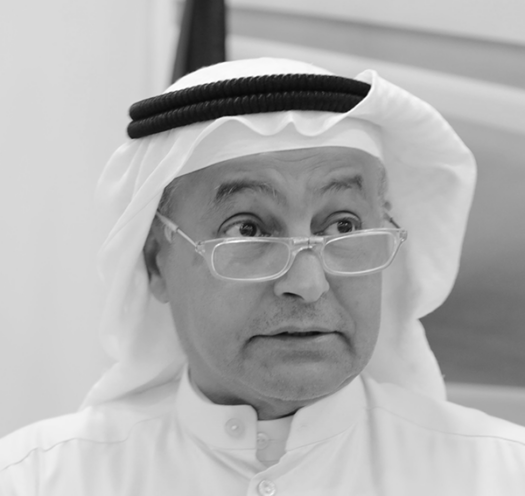

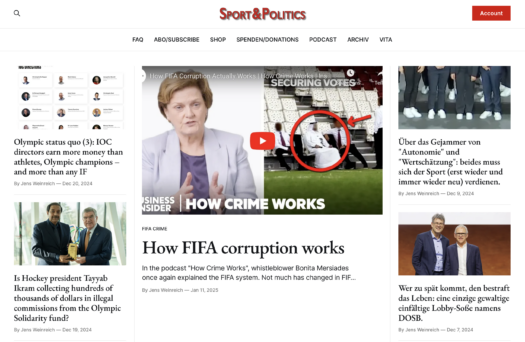
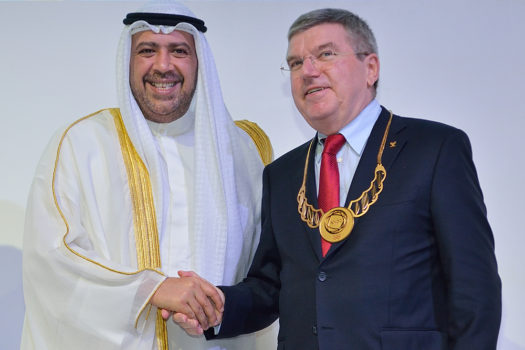
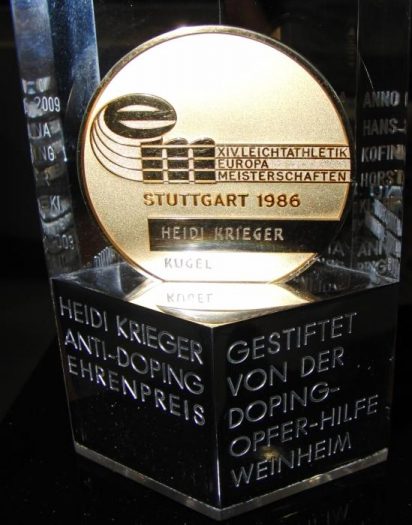
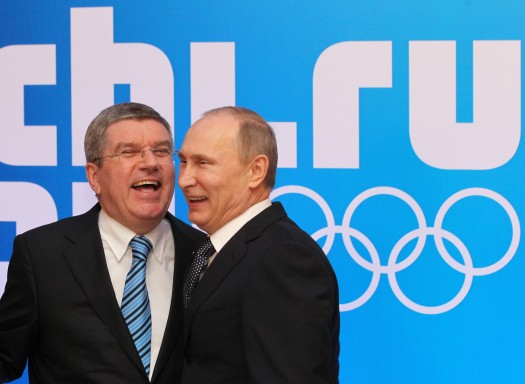
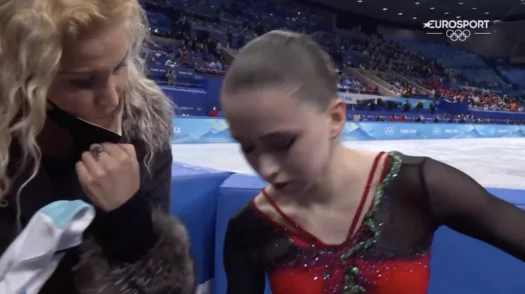
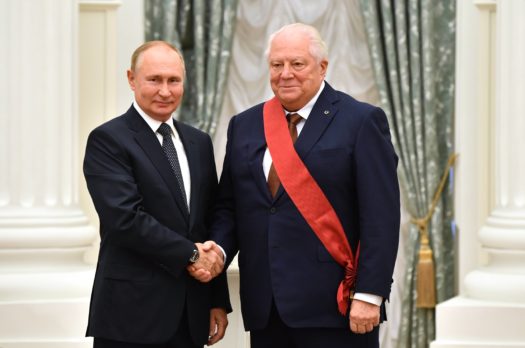
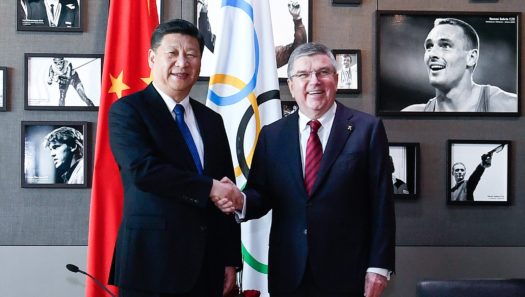
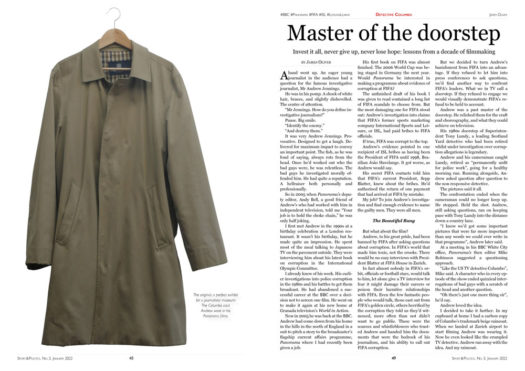
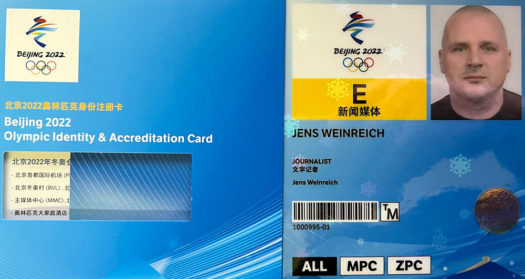
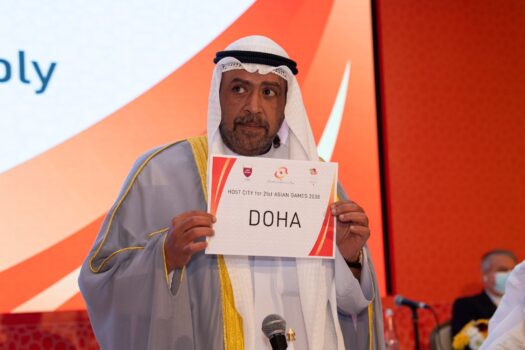
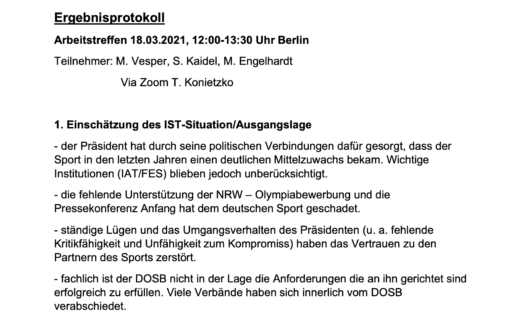
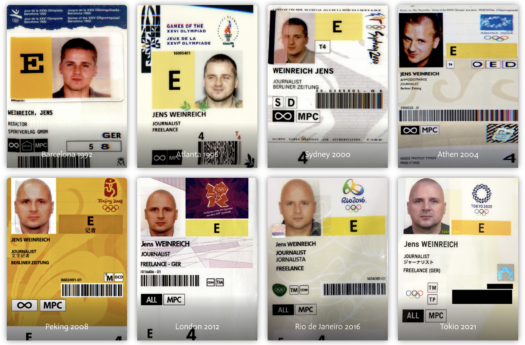
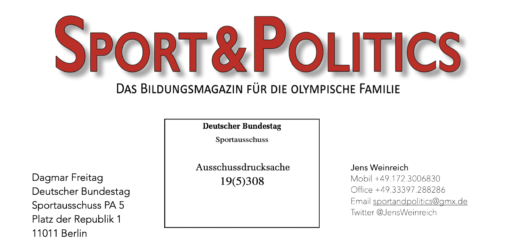
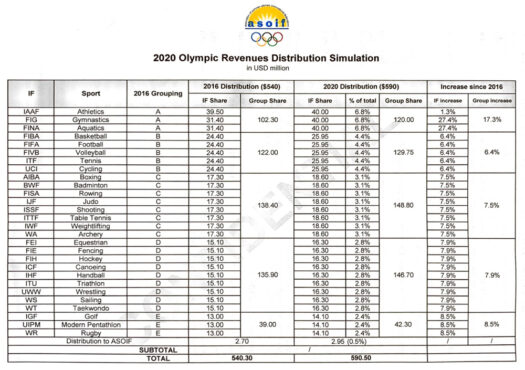
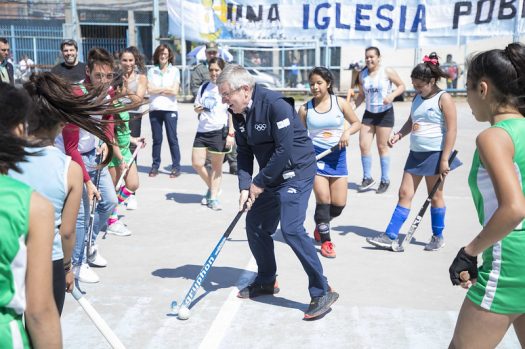
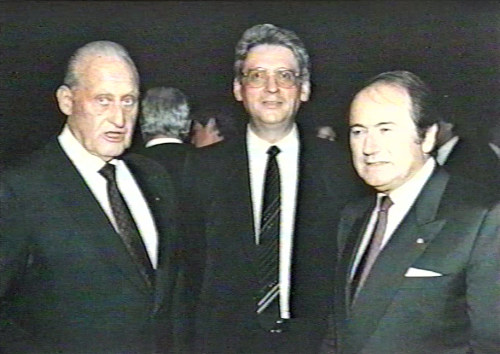
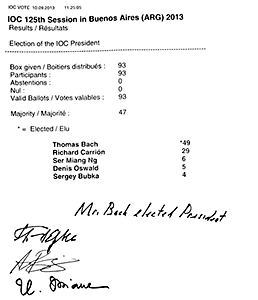
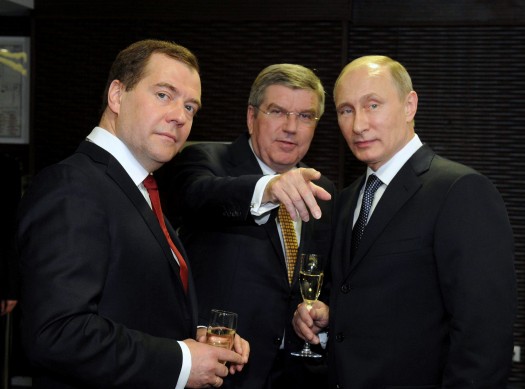
Special Investigation von Camini Marajh im Trinidad Express:
Part I: $100m & more missing
Part II: Money trail exposed
Part III: The great deception
Part IV: ?
Der Deutschlandfunk behauptet übrigens online:
So ein Unsinn.
Erstens sind es mehr als „Vorwürfe“.
Zweitens gab es zuvor schon viele Dokumente zu Warners dreckigen Geschäften.
#QualitätsjournalismusDLF
Part IV: Fraud all over
Teil V kommt morgen :)
Trinidad Express: Warner resigns
Dafür gibt es doch Twitter :)
Pingback: Twitter-Wahrheitsdroge für @SeppBlatter, doch Rücktritte nur von Jack the Ripper und Alexandra Wrage : sport and politics
Pingback: FIFA’s Jack the Ripper and the Holy Bible: “with your love, your support and your understanding, I shall be your MP again” : sport and politics
Wenn es nicht um Sepp Blatter geht, handelt der Ethikkammer-Chef Hans-Joachim Eckert ziemlich flink und halbwegs konsequent:
Obwohl, korrigiere mich selbst: Was heißt flink? Andrew Jennings hat Blazers Abkassieren bereits vor zwei Jahren bestens dokumentiert:
FIFA-Whistleblower Chuck Blazer kassiert 9,6 Millionen Dollar (und mehr)